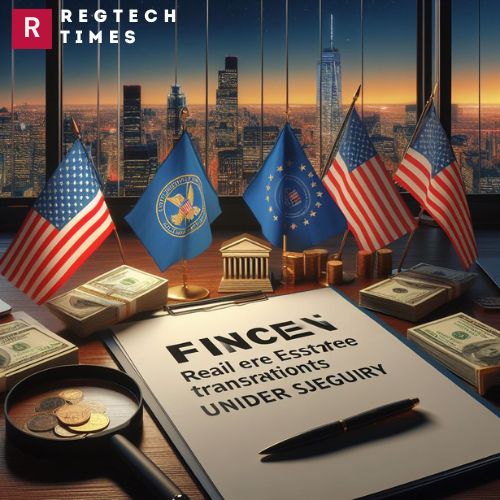In the realm of real estate transactions, transparency is paramount in combating financial crimes. The Financial Crimes Enforcement Network (FinCEN) leads this charge within the U.S. Department of the Treasury. Geographic Targeting Orders (GTOs) are among FinCEN’s crucial tools, targeting illicit activities involving shell companies. As FinCEN renews its focus on GTOs, focusing on specific areas and transaction thresholds, the implications for market transparency and regulatory efforts are profound. This article explores the key terms, implications, and future outlook of FinCEN’s renewed GTOs in safeguarding real estate integrity against financial crimes.
Explanation of Key Terms
Financial Crimes Enforcement Network (FinCEN)
Founded in 1990, FinCEN, a bureau of the U.S. Department of the Treasury, is dedicated to thwarting money laundering, terrorist financing, and other financial crimes. It collects and analyzes financial transaction data to support law enforcement and regulatory agencies in safeguarding the financial system from illicit activities.
Geographic Targeting Orders (GTOs)
GTOs are regulatory instruments employed by FinCEN to gather data on specific transaction types within targeted geographic areas. These orders mandate certain businesses, like title insurance companies, to compile and report data on transactions meeting specified criteria. In the realm of real estate, GTOs focus on unveiling individuals behind shell companies engaged in high-value residential property acquisitions, addressing concerns surrounding money laundering and illicit financial activities.
Shell Companies
Shell companies are legal entities devoid of substantial operational assets or significant business activities. While not inherently unlawful, they can be exploited to obscure asset ownership and facilitate illicit financial transactions. In real estate dealings, shell companies may obscure buyer identities, complicating efforts to trace fund sources and detect potential money laundering or criminal activities.
Anti-Money Laundering (AML) Regulation
AML regulations aim to prevent the use of financial systems for laundering proceeds from criminal activities. They impose obligations on financial institutions and select non-financial businesses to implement measures for identifying and reporting suspicious transactions. In real estate, AML regulations enhance transparency and accountability by subjecting high-value transactions and involved parties to heightened scrutiny.
Renewal of GTOs by FinCEN
FinCEN’s decision to renew GTOs underscores its resolve to combat illicit activities in real estate markets. Effective from April 19, 2024, to October 15, 2024, the renewed orders target specific counties and major metropolitan areas across several states. Title insurance companies are mandated to unveil the natural persons behind shell companies involved in non-financed residential property acquisitions exceeding $300,000, except in Baltimore, where the threshold is $50,000.
The renewal of GTOs serves various objectives, including tracking illicit funds, deterring criminal activities, and informing FinCEN’s regulatory endeavors. By extending these orders, FinCEN aims to sustain momentum in its ongoing quest to shield real estate markets from exploitation by illicit actors.
Implications and Future Outlook
The renewal of GTOs by FinCEN bears significant implications for real estate markets and regulatory enforcement efforts. By continuing to amass data on high-value transactions and shell company involvement, these orders foster enhanced transparency and accountability in the real estate sector. Moreover, the renewal aligns with FinCEN’s broader goals of fortifying AML measures and upholding financial system integrity.
Looking ahead, the trajectory of regulatory efforts in real estate hinges on various factors, including feedback on proposed AML regulations. Continued collaboration among regulatory agencies, industry stakeholders, and the public will be paramount in devising effective strategies to combat financial crimes and uphold real estate market integrity.
Conclusion
In conclusion, FinCEN’s renewal of Geographic Targeting Orders (GTOs) underscores ongoing endeavors to bolster transparency and thwart illicit activities in the real estate sector. By understanding key terms such as FinCEN, GTOs, shell companies, and AML regulations, stakeholders gain insights into the regulatory landscape and its implications for real estate transactions. Moving forward, sustained vigilance and collaboration will be vital in combating financial crimes and preserving real estate market integrity.


